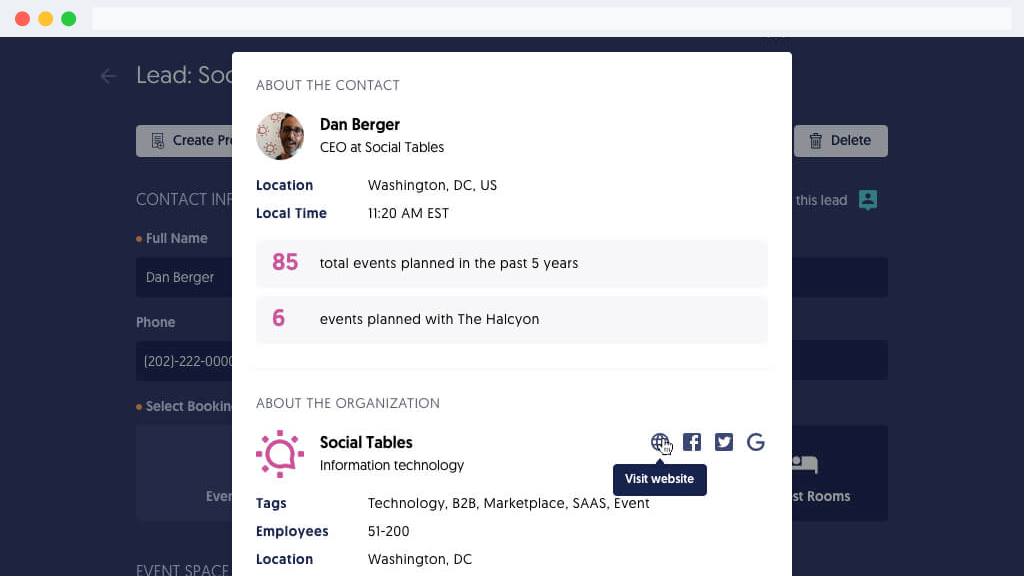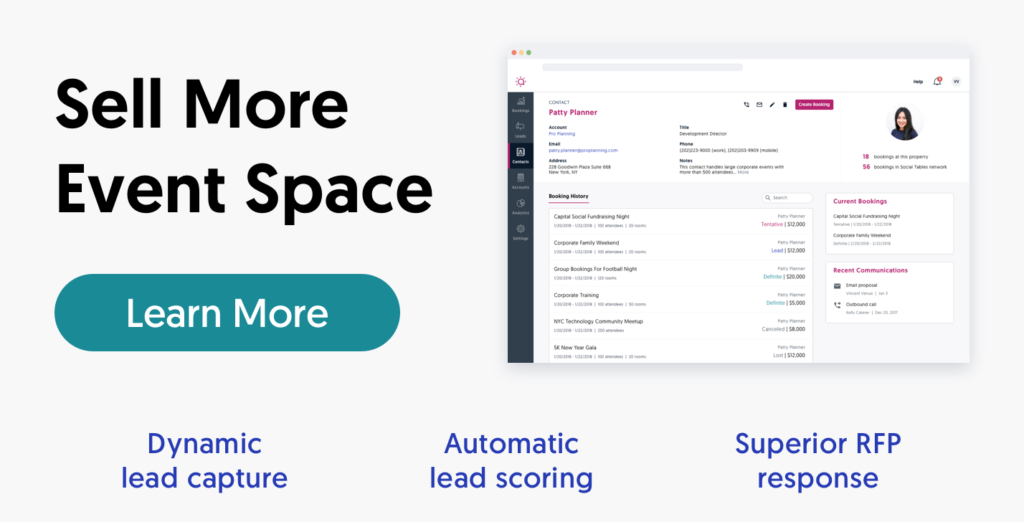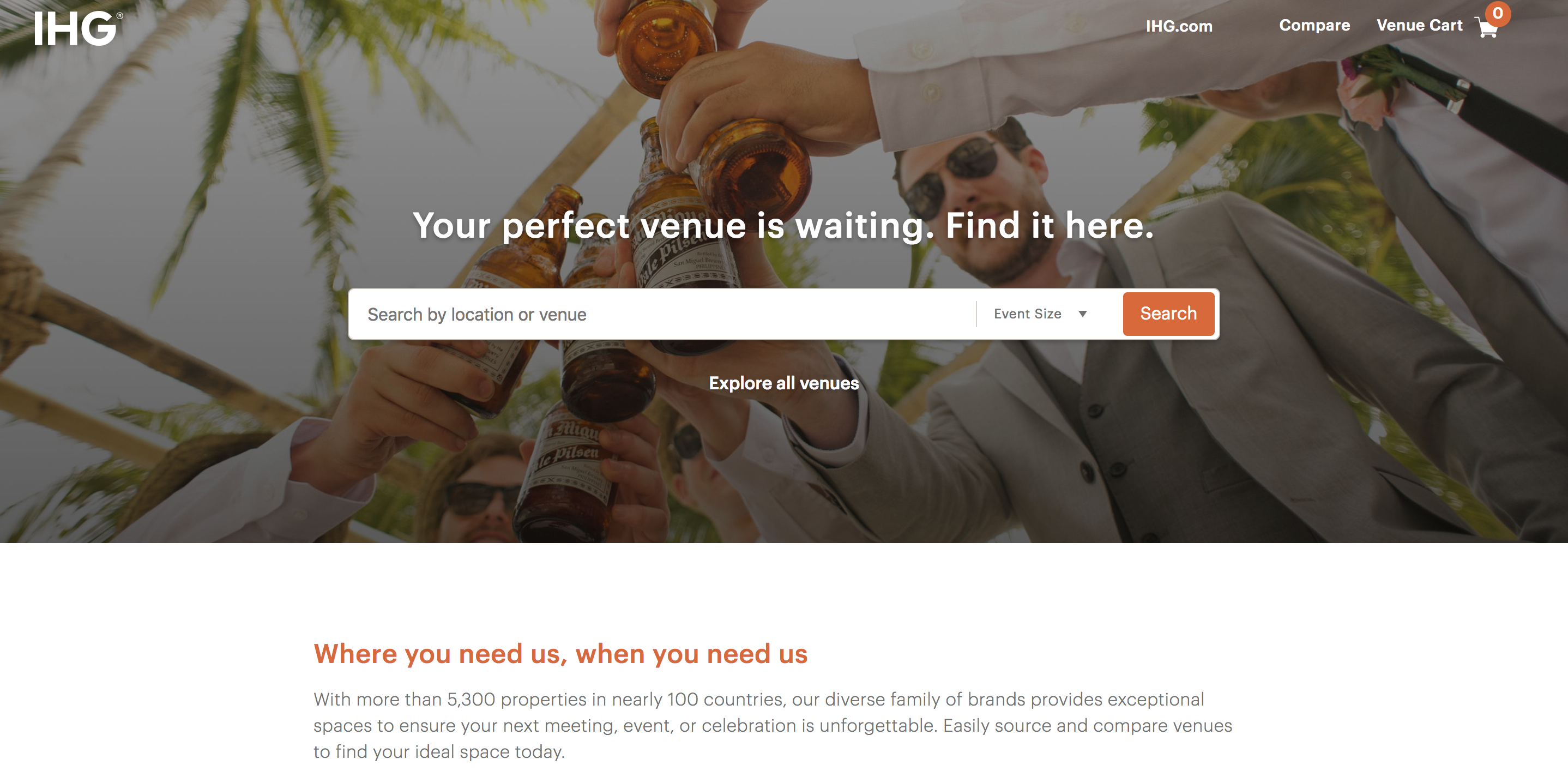
Hotel RFP Management: How to Create an Effective Strategy for Group Business Leads
If your hotel or venue is receiving more RFPs than ever, it’s no coincidence: Properties have seen a 300% increase in RFPs over the last five years. Who’s to thank for this overabundance of RFPs? It’s not just meeting planners ” it’s technology.
Event technology has made planners’ lives more convenient, allowing them to submit multiple RFPs with the click of a button. Combine that with the seemingly astronomic rise in group demand across the industry, and it’s easy to see how hotels and venues are sifting through more RFPs than sales teams know what to do with.
It’s like Betsy Bondurant, President of Bondurant Consulting, said on a recent IMEX panel: Now once we know what a meeting wants to achieve, we can easily send [an RFP] to 10 or 20 hotels.
With over 75% of proposals being won by the first five properties to respond, and RFPs piling up faster than sand on the flip side of the hourglass, sales success can’t happen without a strong RFP management strategy. But what tactics can teams implement to make sure they’re identifying and responding to the right leads quickly?
3 Keys to a Successful Hotel RFP Management Strategy
1. Decrease RFP response time.
You’ve heard the saying, first impressions are everything, and the same goes for interacting with planners. As a meeting planner, would you select a property that treated your business as an afterthought? Decreasing your response time tells leads that their event is an important piece of business that takes priority.
Quick response times also leave another significant impression on event planners: When you respond promptly, it signals that a planner can expect great communication with you throughout the event. [An RFI Form could help!]
This is a top quality that meeting planners search for when booking a property the first time around, and a key factor in repeat business. In fact, 37% of planners cite bad communication as the number one reason they go with another property during the proposal process.

Technology Is Changing RFP Response Time
Technology may be responsible for the overload of RFPs pummeling sales departments, but it’s also helping hotels and venues in a major way. RFP management technology can reduce response times from 2+ weeks to within the first 24 hours by intelligently scoring leads as they come in, amongst other benefits, which means your sales team is spared the dirty work.
As leads come through, they’re automatically qualified by the platform based on factors decided by the property. For sales teams, it’s a game changer that turns the focus from qualifying each RFP to creating the responses designed to win them: a process that’s catalyzed by working from a smart RFP response template that’s easily adaptable.
2. Prioritize the Right RFPs.
One way to make sure you’re prioritizing the right RFPs is to take a look at your current mix. Why? A lot of hotel properties are qualifying leads in ways that dismiss important factors of revenue potential.
One of the most common biases that negatively affects hotel bottom lines is aiming exclusively for room blocks. A large percentage of revenue managers (52%) and sales teams (36%) indicate that they look to RevPAR index or room revenue as primary performance indicators. This bias uncovered by a 2015 HSMAI survey illustrates a lack of creative upsell pertaining to other group services that hotels have to offer.
While room blocks and group business can generate significant revenue, prioritizing them too much results in an overall failure to maximize ancillary revenue from other pieces of the event.
Just look at the numbers.
Last year, while the industry saw $30 billion in group revenue generated by hotels, a whopping $110 billion was generated in ancillary spend. By disregarding proposals that don’t include room blocks, reps are ultimately leaving huge spend on the table from AV, food and beverage, and other customized services.
If that wasn’t enough reason to rethink your lead scoring, consider transient business. When a sales team automatically turns down RFPs that contain no room blocks, they haven’t just eliminated the possible ancillary revenue ” they also aren’t taking into account higher transient rates.
For properties with higher levels of transient bookings, oversaturating availability with group rooms could turn away business that’s willing to pay more for the exact same product.

Identifying High-Opportunity Group Personas
In order to optimize RFP response, it’s imperative to make your sales history do the heavy lifting for you. Sales teams can use historical data to segment group types and pinpoint opportunities for higher levels of ancillary spend. The more personalization you can create for group business the better.
The biggest determinant of ancillary profit lies in F&B spend. Between 2010 and 2016, F&B profit margin at hotels increased from 24.9% to 29.5%.
Sales teams can use factors like F&B to score different group types and put them into performance buckets. Using this ranking system and their own qualifiers, hotels and venues can start to narrow down the types of business and RFPs to prioritize in responses.
For example, if you know that associations rarely book room blocks and don’t have catered events at your property, you might focus more on earning community events. While community events may not have room blocks, there could be an opportunity for effective F&B upsell.
In general, this type of segmentation exercise can start with the high-level tendencies that most properties are familiar with:
- Corporate – Lead time is generally lower, but rates are generally higher
- Associations – Book far in advance without room blocks and aren’t likely to host a catered event
- Government – Since they’re funded by per diem, they’re consistent, but generally leave little room for upsell
- Community events – No room blocks, but F&B is a possibility depending on the event
3. Attract more qualified leads.
RFP technology is poised to help your sales team qualify group leads, but what about a strategy to generate leads in the first place? Meeting planners who do their own sourcing are relying on their own networks and navigating endless unknowns in order to find properties that are a true match for their needs.
Direct booking channels enable chains and hotels to take their marketing and positioning into their own hands and connect with these planners. They’re are also a great way to build up a store of planner relationships that marketing and sales teams can actively reach out to. After all, with positive relationships come recurring revenue streams.
Today, the majority of modern meeting planners have taken their venue research online (over 50% currently research venues online during the sourcing process). A direct booking channel targets those planners, allowing hotels and venues to communicate the unique elements of their properties that help planners meet their overall event objectives.
Major chains and hotel groups are beginning to realize, including IHG, who recently launched their own direct group sourcing and booking engine powered by the Social Tables Group Distribution Platform.

Client-Focused Marketing
When events find success, it doesn’t just benefit planners ” it also creates a powerful marketing tool for properties looking to increase group business. Thus, the more chains can help show planners how they can help them achieve that success, the more they can drive brand affinity and, in turn, repeat business.
It all starts with showing how their event spaces are tailored to the unique nuances and goals of a given event ” and it’s a story that should be spun at the tip of the marketing funnel.
That’s the entire basis of Marriott’s Meetings Imagined initiative. The website offers resources that help planners identify the purpose of their event and execute in ways that bring that purpose to life. It offers up plenty of inspiration along the way, showcasing the Marriott portfolio through user-generated content from happy planners to promote authenticity in their message.
Hilton takes a similar approach with their WowMakers campaign, featuring stories from planners who have pulled off incredible or complex events at Hilton properties.
In doing so, both chains are able to drive more qualified RFPs, while instilling a sense of brand loyalty by communicating the image of a helpful partner.
Time to revisit your strategy.
The excess of RFPs in recent years indicates ample opportunity to bring in group revenue ” but that’s only the case for properties who are able sift through the clutter. Successful properties need to adapt to new lead technologies and new RFP management strategies, thus equipping themselves with the right tools to thrive in the ever-changing world of group sales.
Don’t forget to check out Social Tables RFP Response Templates & RFI Forms!

